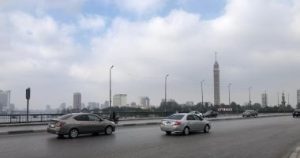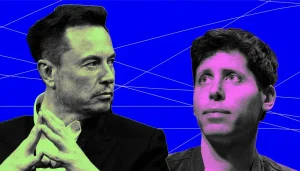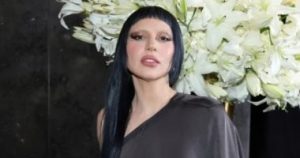I watched a viral video on social media where journalist Othman Mirghani “Banfakha” narrates the power of the world: “No state without an army.” It reminded me of a conversation I heard from trusted sources about the idea of a state without armies, on which I have written several articles. Today, I try to write about this dream, a text suitable for cultural exchange and light storytelling.
In a world rife with conflicts, where armies dominate the scenes of power and authority, talking about “states without armies” seems like a fantasy or political utopia.
However, when we look at some countries that deliberately, or under historical and geographical pressures, chose the path of demilitarization, we are surprised that some of these countries have achieved remarkable economic and developmental success, surpassing countries with huge armies and enormous military budgets. Here, countries like Costa Rica, Iceland, and Panama stand out as inspiring models worth noting.
The question that arises: Could “Sudan without an army” be a debatable idea?
There are countries without armies that have become inspiring models. For example, Costa Rica achieved security through education, not weapons. Costa Rica officially abolished its army in 1948 after a short civil war, and since then, it has directed its resources to education, health, and infrastructure.
Today, it is considered one of the most stable countries in Latin America, excelling in human development, environment, and happiness indices.
Iceland adopted a security policy through alliances. Despite its sensitive geographic location, Iceland does not have a standing army. It relies on its NATO membership and invests in police and emergency services. This has not prevented it from being among the countries with the highest living standards and education.
Then comes Panama, which achieved development after dissolving its army. Panama abolished its army in the 1990s after decades of military rule. Since then, the country has witnessed stable economic growth and improved its status as a global logistics hub thanks to the Panama Canal and its strategic location.
Among pioneering examples in our African continent, Rwanda represents a lesson in curbing state militarization, although its experience is more complex. After the 1994 genocide, the country rebuilt itself under the leadership of Paul Kagame. The Rwandan army was not abolished but was not used as a continuous internal repression tool (despite human rights criticisms). Instead, the state adopted a strict developmental model based on fighting corruption, discipline, and digital transformation, prioritizing infrastructure, education, and health.
Although Rwanda does not represent a “state without an army,” it shows how an African country can rise if it rearranges its priorities and reduces the military institution’s dominance over political decisions.
In our Sudan (the one we admire), do we dream of a homeland without an army? Our Sudan, ravaged by the lust for militarization of power and drained of its resources, do we dream of a homeland without an army?
Sudan, unlike those models, has paid the price of militarizing the state since its independence. From coup to coup, and from civil war to another, the Sudanese army has always been at the heart of the conflict, not outside it.
Instead of being a tool to protect the homeland, it became a political, economic, and security player. It has failed to protect borders, preserve dignity, or achieve development.
The idea of “Sudan without an army” may seem utopian or even dangerous amid current threats.
But the truth is that this army—or rather the multiple armies and militias—no longer represent protection but a burden and threat to the homeland and citizens.
They consume resources, undermine democracy, weaken civil institutions, and prevent stability. Can Sudanese think outside the box?
The Sudanese people have a long history of struggle, from the October Revolution to the December Revolution. They have shown advanced civil awareness and passion for democracy and freedom.
Every time tyrants fall, the people demand civilian rule, a state of law, and elected institutions, not tanks.
But the intellectual revolution is not yet complete. Many still see the army as a symbol of the homeland, although this “army” is the same one that overthrew the revolution, contributed to the country’s division, and drowned it in civil wars.
So what if…? If we want to rebuild Sudan, we must ask: What if we invested the army’s budget in education, health, and agriculture?
What if the civilian police replaced the military inside the country?
What if we relied on regional alliances to secure the borders?
What if we built a new national consciousness based not on fear but on hope?
Is there a way to all this?
My answer is that the way is not easy, but it is possible if we start an honest national dialogue with radical criticism of the militarization of the state and dismantle the blind glorification of the military. If we carry out constitutional reforms that set clear controls on the army’s role or pave the way for its gradual abolition. If we rehabilitate the regular forces by integrating those fit into a professional civilian police force and honorably discharging the rest. If we restructure the economy by removing the army from all economic activities. If we provide regional and international guarantees to build a “Sudan without an army” model through peaceful security understandings.
In conclusion, the dream of “Sudan without an army” is not fantasy but a brave thought amid a bitter reality produced by militarization and armed chaos. The pure civil state model, based on education, health, and justice, is not impossible.
Countries with fewer resources than Sudan have done it.
History is not made by guns but by minds.
Do we have the courage to dream?
And do we have the boldness to build a homeland not trampled by the “military boot”?













Recommended for you
Exhibition City Completes About 80% of Preparations for the Damascus International Fair Launch
Talib Al-Rifai Chronicles Kuwaiti Art Heritage in "Doukhi.. Tasaseem Al-Saba"
Unified Admission Applications Start Tuesday with 640 Students to be Accepted in Medicine
Egypt Post: We Have Over 10 Million Customers in Savings Accounts and Offer Daily, Monthly, and Annual Returns
His Highness Sheikh Isa bin Salman bin Hamad Al Khalifa Receives the United States Ambassador to the Kingdom of Bahrain
Al-Jaghbeer: The Industrial Sector Leads Economic Growth